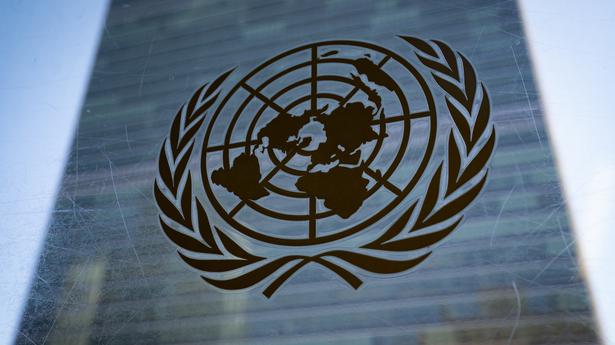
Russia blocks final document at U.N. nuclear treaty conference
The Hindu
The final document of the U. N. treaty for nuclear disarmament needed approval of all countries at the conference that are parties to the treaty, but Russia pointed out that there was no consensus on the it
Russia late Friday blocked agreement on the final document of a four-week review of the U. N. treaty considered the cornerstone of nuclear disarmament which criticised its military takeover of Europe's largest nuclear plant soon after Russian troops invaded Ukraine, an act that has raised fears of a nuclear disaster.
Igor Vishnevetsky, deputy director of the Russian Foreign Ministry's Non-Proliferation and Arms Control Department, told the delayed final meeting of the conference reviewing the 50-year-old Nuclear Nonproliferation Treaty that “unfortunately there is no consensus on this document.” He insisted that many countries — not just Russia — didn't agree with “a whole host of issues” in the 36-page last draft.
The final document needed approval of all countries at the conference that are parties to the treaty aimed at curbing the spread of nuclear weapons and ultimately achieving a world without them.
Argentine Ambassador Gustavo Zlauvinen, president of the conference, said the final draft represented his best efforts to address divergent views and the expectations of the parties “for a progressive outcome” at a moment in history when “our world is increasingly wracked by conflicts, and, most alarmingly, the ever growing prospect of the unthinkable nuclear war.” But after Vishnevetsky spoke, Zlauvinen told delegates, “I see that at this point, the conference is not in a position to achieve agreement on its substantive work.”
The NPT review conference is supposed to be held every five years but was delayed because of the COVID-19 pandemic. This marked the second failure of its 191 state parties to produce an outcome document. The last review conference in 2015 ended without an agreement because of serious differences over establishing a Middle East zone free of weapons of mass destruction.
Those differences haven't gone away but are being discussed, and the draft outcome documents obtained by The Associated Press would have reaffirmed the importance of establishing a nuclear-free Mideast zone. So, this was not viewed as a major stumbling block this year.
The issue that changed the dynamics of the conference was Russia's invasion of Ukraine on February 24, which brought Russian President Vladimir Putin's warning that Russia is a “potent” nuclear power and that any attempt to interfere would lead to “consequences you have never seen.” He also put Russia's nuclear forces on high alert.











